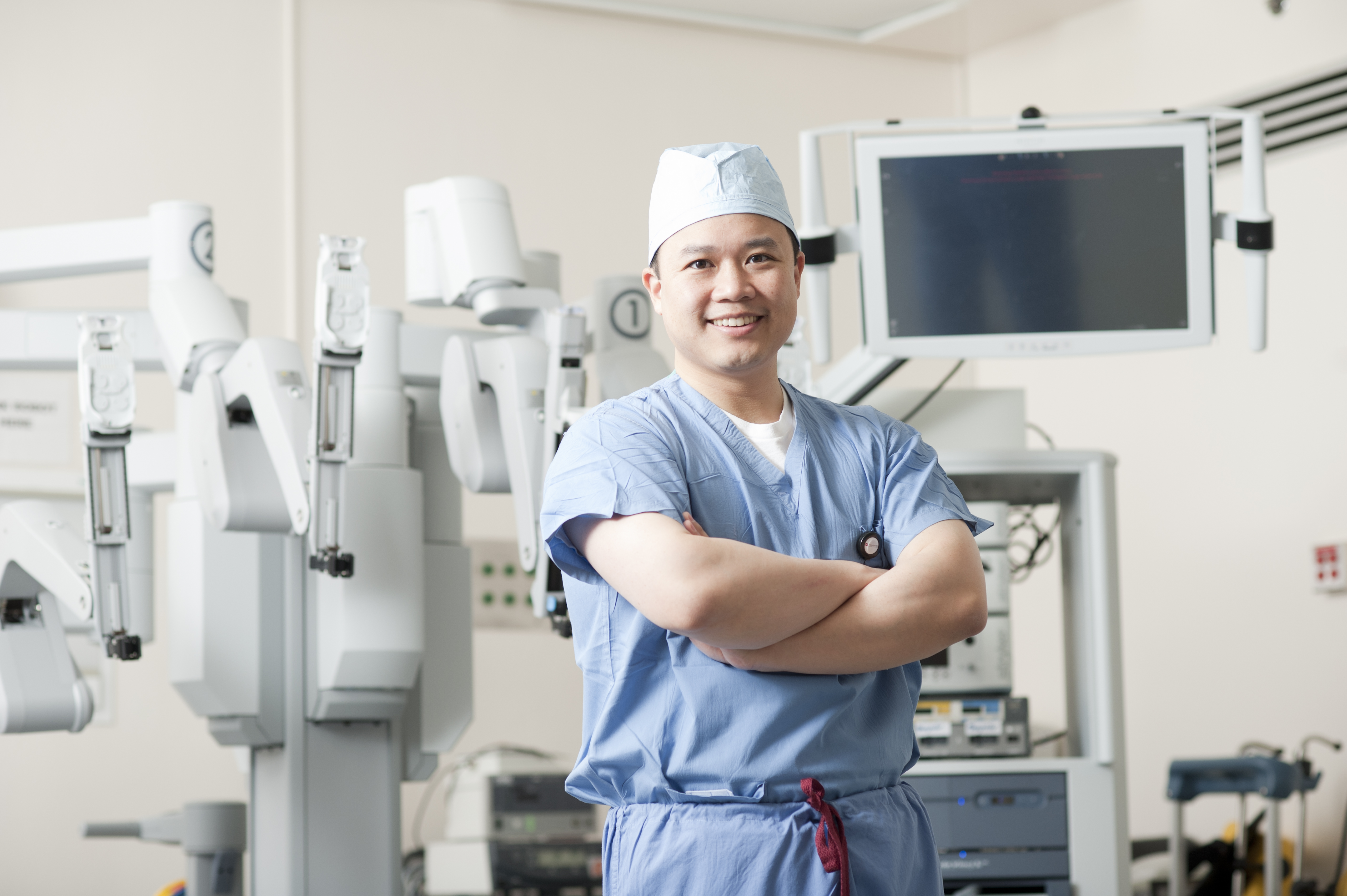 Investigators in the Center for Surgery and Public Health (CSPH) at Brigham and Women’s Hospital (BWH) – in conjunction with colleagues from Stanford University Medical Center – compared the use, outcomes and costs between robotic-assisted and laparoscopic approaches, two common minimally surgical techniques, for radical nephrectomy. They studied surgeries in 23,753 patients across hundreds of US hospitals between 2003 and 2015.
Investigators in the Center for Surgery and Public Health (CSPH) at Brigham and Women’s Hospital (BWH) – in conjunction with colleagues from Stanford University Medical Center – compared the use, outcomes and costs between robotic-assisted and laparoscopic approaches, two common minimally surgical techniques, for radical nephrectomy. They studied surgeries in 23,753 patients across hundreds of US hospitals between 2003 and 2015.
Among patients undergoing radical nephrectomy, which is total kidney removal for the treatment of kidney cancer, the use of robotic-assisted surgery increased substantially in the study period. This is a trend that parallels other procedures such as prostatectomy and hysterectomy.
The results of this study demonstrated no appreciable differences in health outcomes between the two minimally invasive procedures in terms of surgical complications. While robotic-assisted surgery was shown to have increased substantially between 2003 and 2015, the use of robotic-assistance was associated with longer operating time and higher hospital costs. These findings were published in the October 2017 issue of JAMA.
“Our data showed that these two approaches are essentially equivalent techniques for radical nephrectomy with robotic-assisted being more costly,” says author Steven Lee Chang, MD, MS, a urologist within the Center for Robotic Surgery at BWH. Dr. Chang conducted the study in collaboration with Ye Wang, PhD, a post-doctoral research fellow at CSPH.
“There are certainly many benefits to minimally invasive surgery, but in today’s world of cost-containment, it is important to also be cognizant of how different approaches impact the financial burden on the healthcare system, especially if two procedures achieve the same outcomes,” says Dr. Chang. Nevertheless, robotic surgery is now widely adopted and has been recognized as an important reason why minimally invasive surgery is currently used for increasingly complex medical conditions. Ongoing research by Drs. Chang and Wang aim to identify the most appropriate use of this surgical technology.